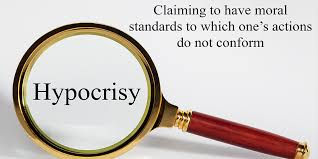Behaalotecha 5779. Leadership: Guidance or Empathy?
- Alex Israel

- Jun 11, 2019
- 4 min read
Updated: Jun 7, 2022

Reading the news nowadays, it feels like we need leaders.
In our parsha too, Moshe experiences a leadership crisis and God instructs him to supplement his leadership with a group of seventy assistants :
אֶסְפָה-לִּי שִׁבְעִים אִישׁ מִזִּקְנֵי יִשְׂרָאֵל אֲשֶׁר יָדַעְתָּ כִּי-הֵם זִקְנֵי הָעָם וְשֹׁטְרָיו
“Gather for me seventy men of the elders of Israel, whom you know to be the elders of the people and officers over them”
From the language - ‘whom you know to be elders’ - It seems evident that these seventy elders are people who are already well known. However, what is the difference between the roles of “elders” and “shotrim” – here translated as officers? What is this dual role, these two occupations?
THEORY AND PRACTICE; INSPIRATION AND IMPLEMENTATION
Ralbag suggests
“He was to gather elders, meaning that they are wise sages, and have the capacity to receive prophecy. But he also wanted them to be “officers” that they could guide the nation in matters of public policy and national leadership”
So this is about the ability to have on the one hand a spiritual capacity, a prophetic connection; and on the other hand the skill-set and mindset that will apply divine law to a national situation. For some commentaries, it indicates the wherewithal to enforce the law, as is mentioned by the Netziv:
“Officials: Who can express strength and instill fear when it is necessary, as in law enforcement officers.”
In this reading, we are looking for a dual skill-set. First - Prophecy, but second - the translation of God’s vision into realpolitik, whether in policy statements, or practical implementation.
EMPATHY
But Rashi selects a very different approach from the Midrash:
אשר ידעת כי הם וגו׳ – אותם שאתה מכיר שנתמנו עליהם שוטרים במצרים בעבדת פרך והיו מרחמים עליהם ולוקין על ידם, שנאמר: ויכו שטרי בני ישראל, עתה יתמנו בגדולתן כדרך שנצטערו בצרתם
“Whom you know” – The people that "you know" were appointed officers over [the Israelites] in Egypt when they were subjected to the harsh labour. The "officers" took mercy on the people and were themselves beaten by the Egyptian taskmasters on their account — as it is said, (Exodus 5:14) “and the officers of the children of Israel were smitten”. Now, [says God,] let them be raised to greatness just as they suffered when [the Israelites] were in distress.
Rashi connects the word שוטר which here indicates an official, to the שטרי בני ישראל - the work foremen who chose to be lashed for the shortcomings of their underlings when the Israelite slaves could not fulfil their quotas of bricks (Ex. 5:14). Interestingly, it is these Jewish officers or foremen challenged Moses and Aharon and accused them of worsening the lot of the Israelite slaves. Moses certainly knows these people, and he understands how much they care about the rank and file Israelites.
And yet, now, in a moment of crisis, when the people are asking for meat, and the camp is in disarray, when Moses is experiencing a loss of confidence, these men are recalled to become national leaders.
Whereas Ralbag and the Netziv suggested that God was proposing leaders who could convey God’s vision to the nation, or could keep the people in line, Rashi’s reading proposes something radically different.
The true and trusted leader is the person who is willing to take the whip for his people. The real leader has earned the trust of the people by working together side-by-side, by suffering together and for one another. These seventy leaders supported their brethren, the common people, in the killing-fields of Egypt. That is why the nation will trust these leaders as they progress through the hardships of the Wilderness of Sinai. In this reading, a deep bond has developed between leader and nation, a trust born in adversity. And these these tough leaders are known to have deeply empathised with their flock, and they understand their troubles, and at the same time, have the vision to lead them forwards. This is true grassroots leadership.
We might add two comments here.
1. Seventy leaders are selected. Why seventy? Some commentaries (eg.Ramban) see the seventy earthly officers as reflective of the divine - God's seventy names, or 70 angels. Others (eg. Hizkuni) see the seventy as reflective of Israel - the "seventy souls that descended to Egypt" (see Ex.1:5; Deut 32:8). These two perspectives might reflect the two approaches we have brought. Are the elders to communicate God's truth or to represent and bolster the people.
2. In our situation, it is not merely the people who are stuck, it is Moses who experiences a collapse. According to Rashi's reading, this group of "officers" can not only gain the trust of the nation but might assist Moses in better understanding the people’s perspective and appreciating their struggles. Moshe will regain his footing by better understanding the character of the nation which he leads.
----
Please discuss these two approaches.
Which of our two readings seems more likely in the context of Bamidbar 11?
In today’s politics can you identify leaders who exemplify both styles that have been proposed here?
Can you think of a leader who embodies BOTH aptitudes described here?
Does each model lend itself to a different national circumstance?
Are we looking for leaders who are national visionaries and architects, leaders who establish and implement clear rules and form protocols, or are we seeking leaders who represent the people’s struggles and can laugh and cry with the average person?
Shabbat Shalom!























Comments